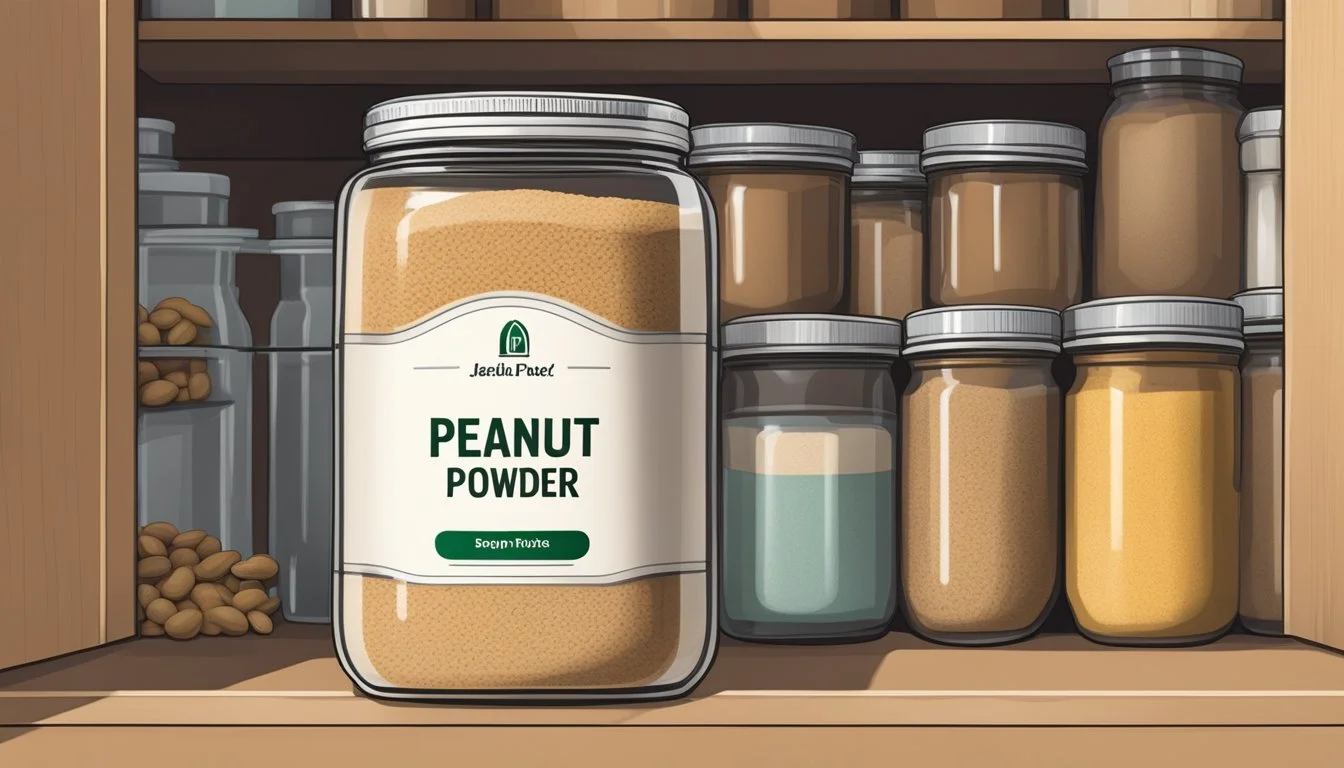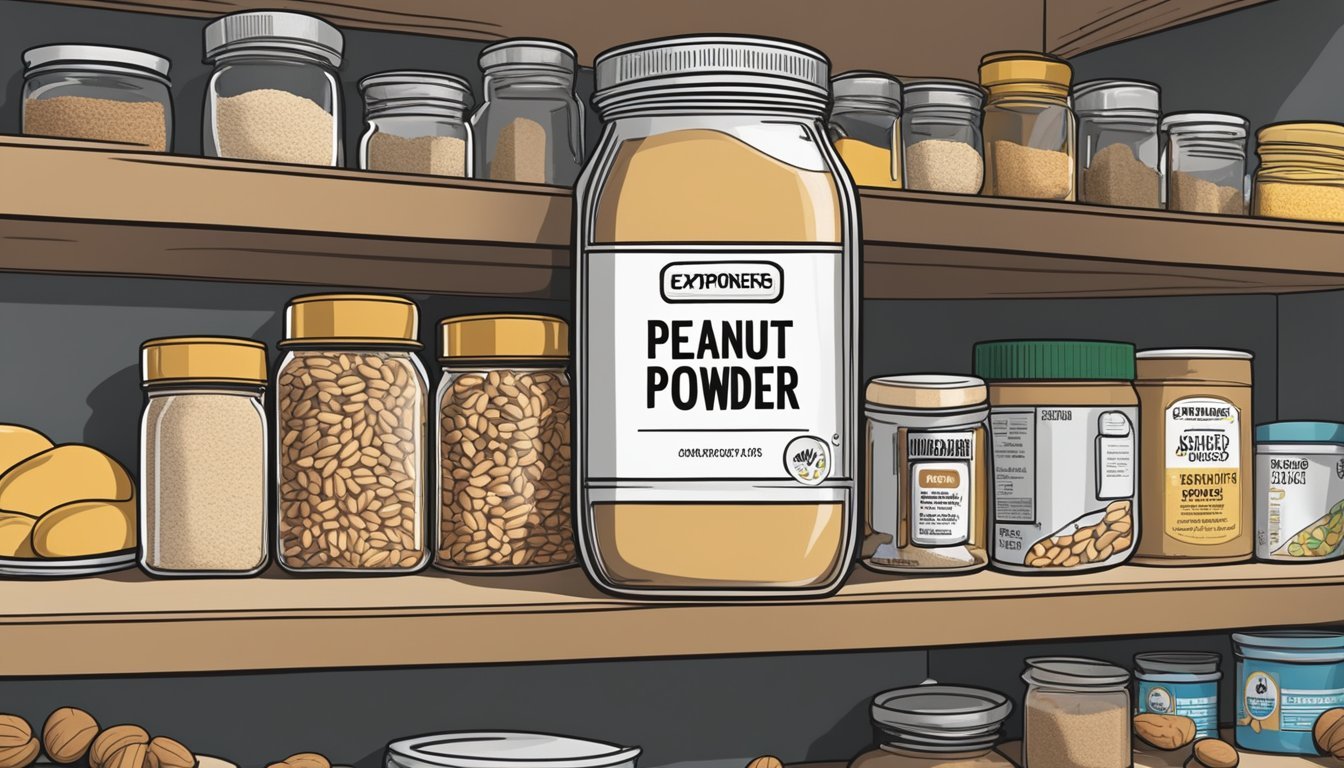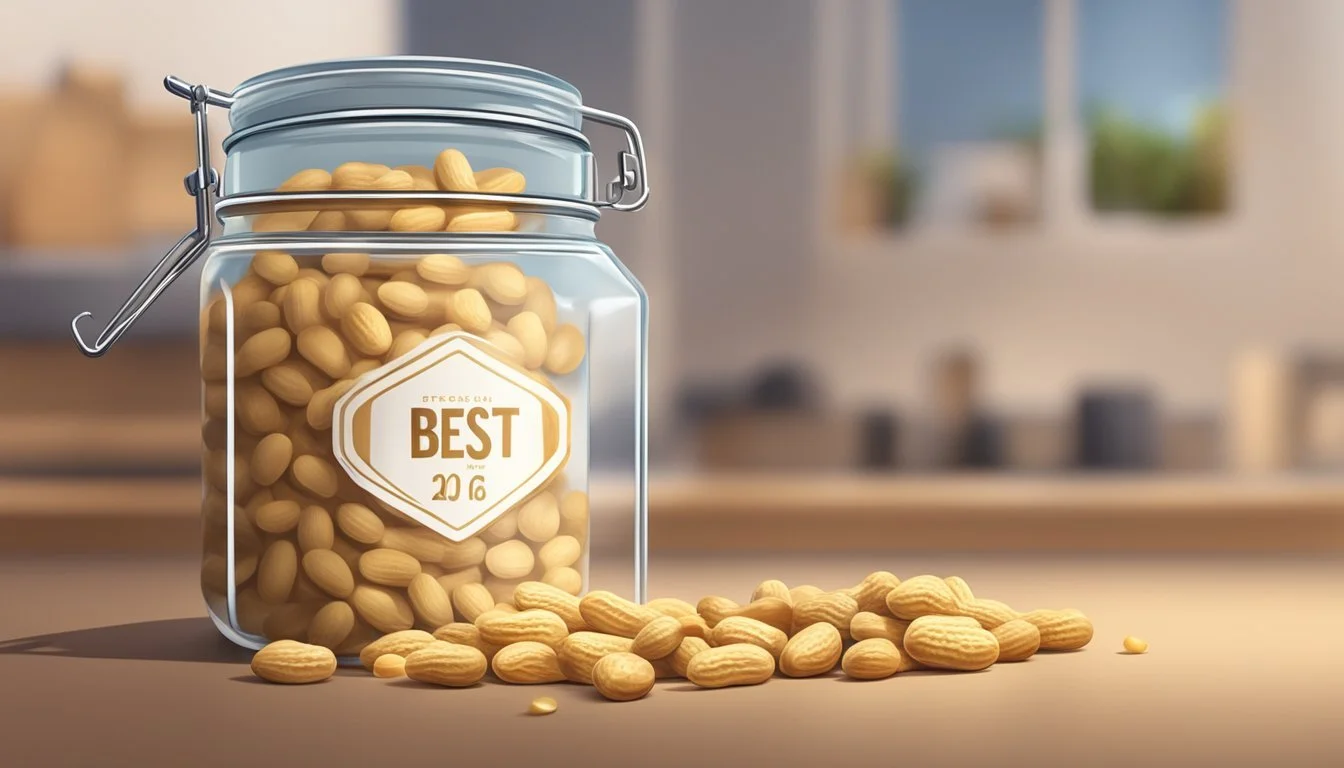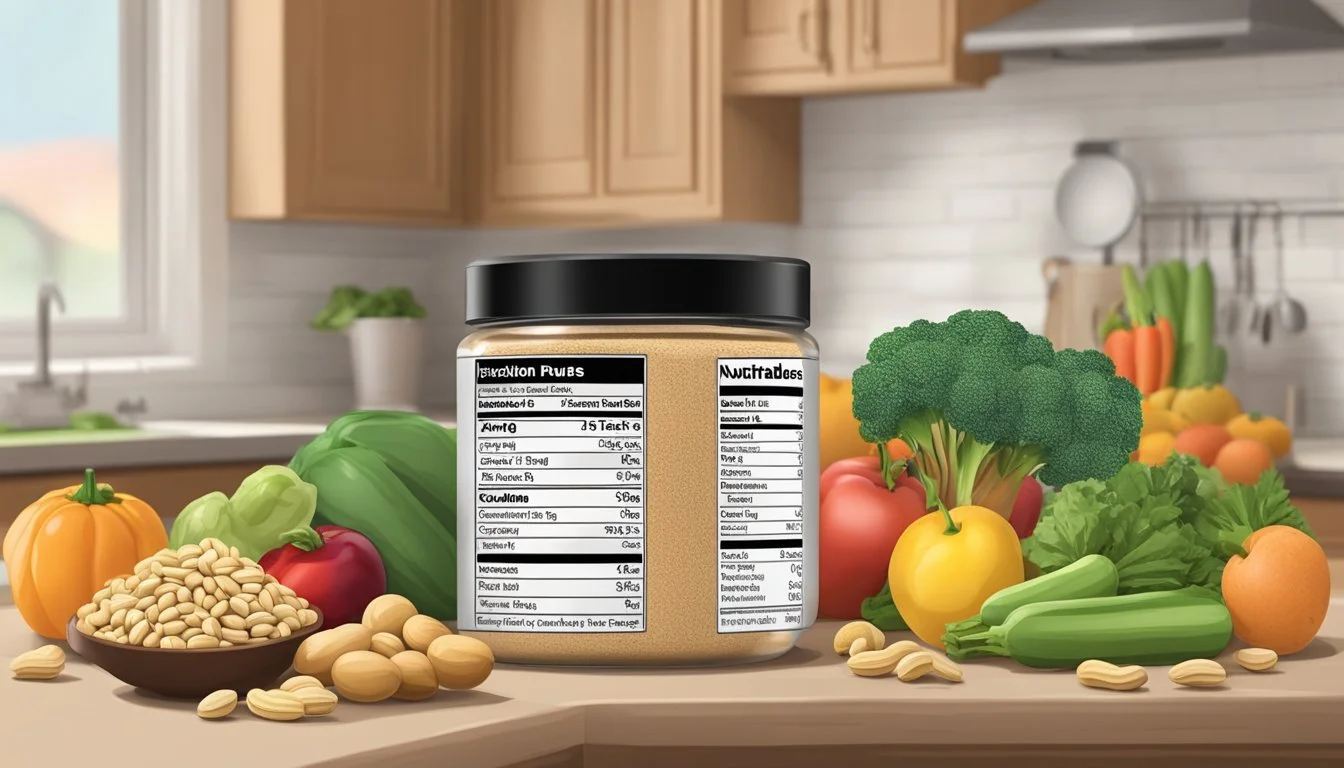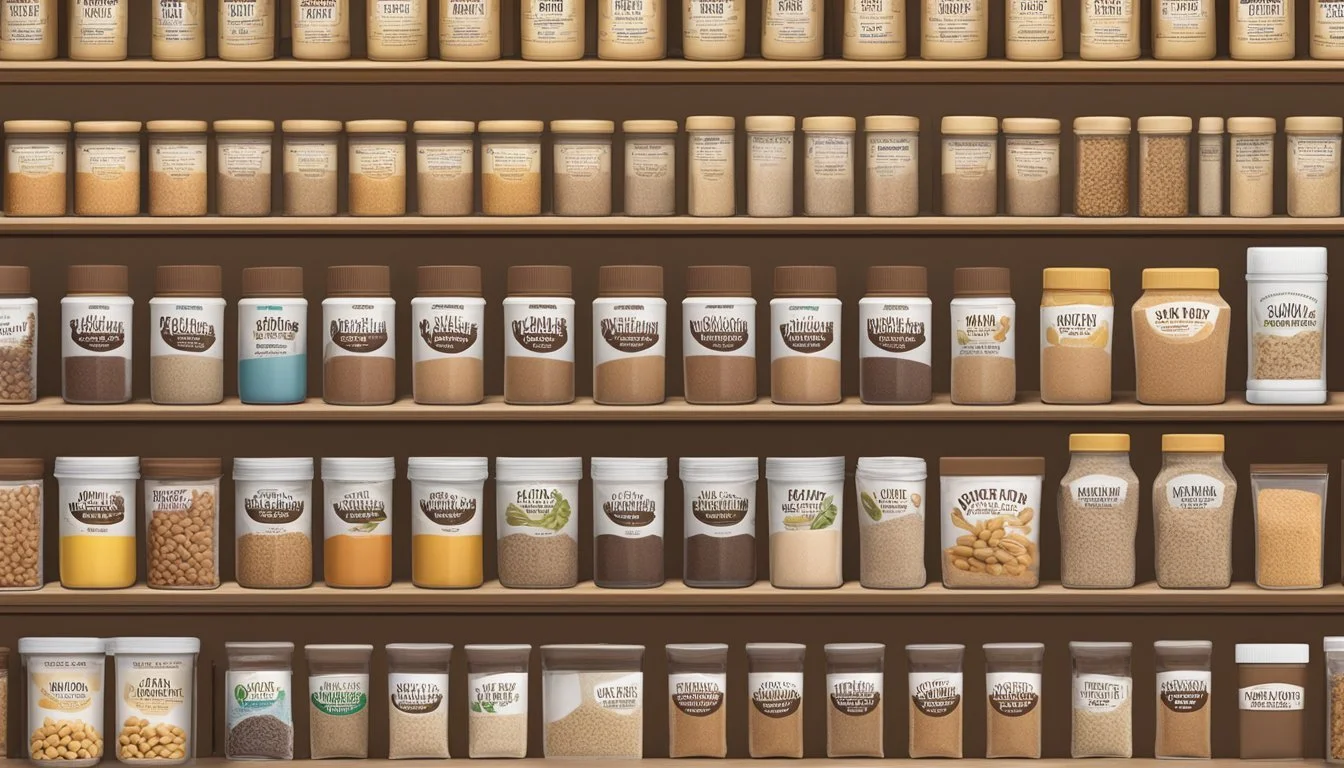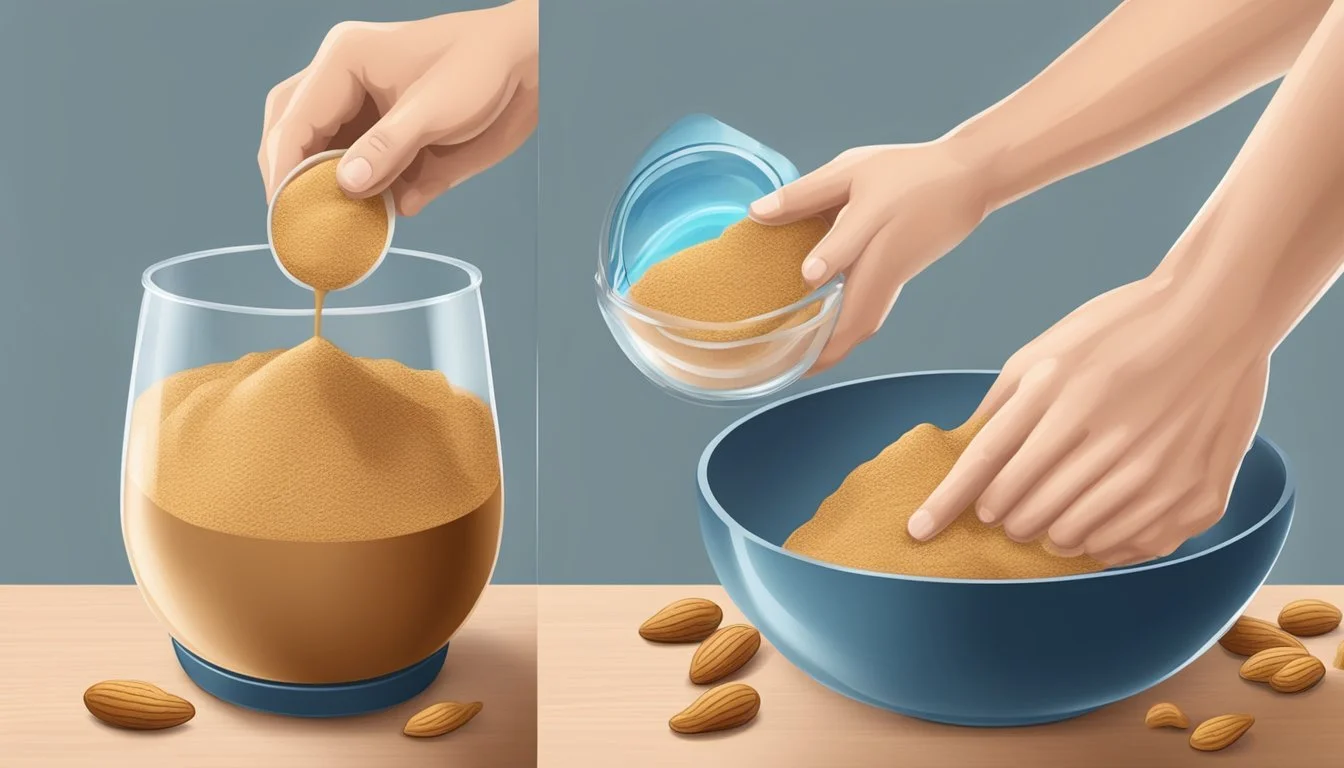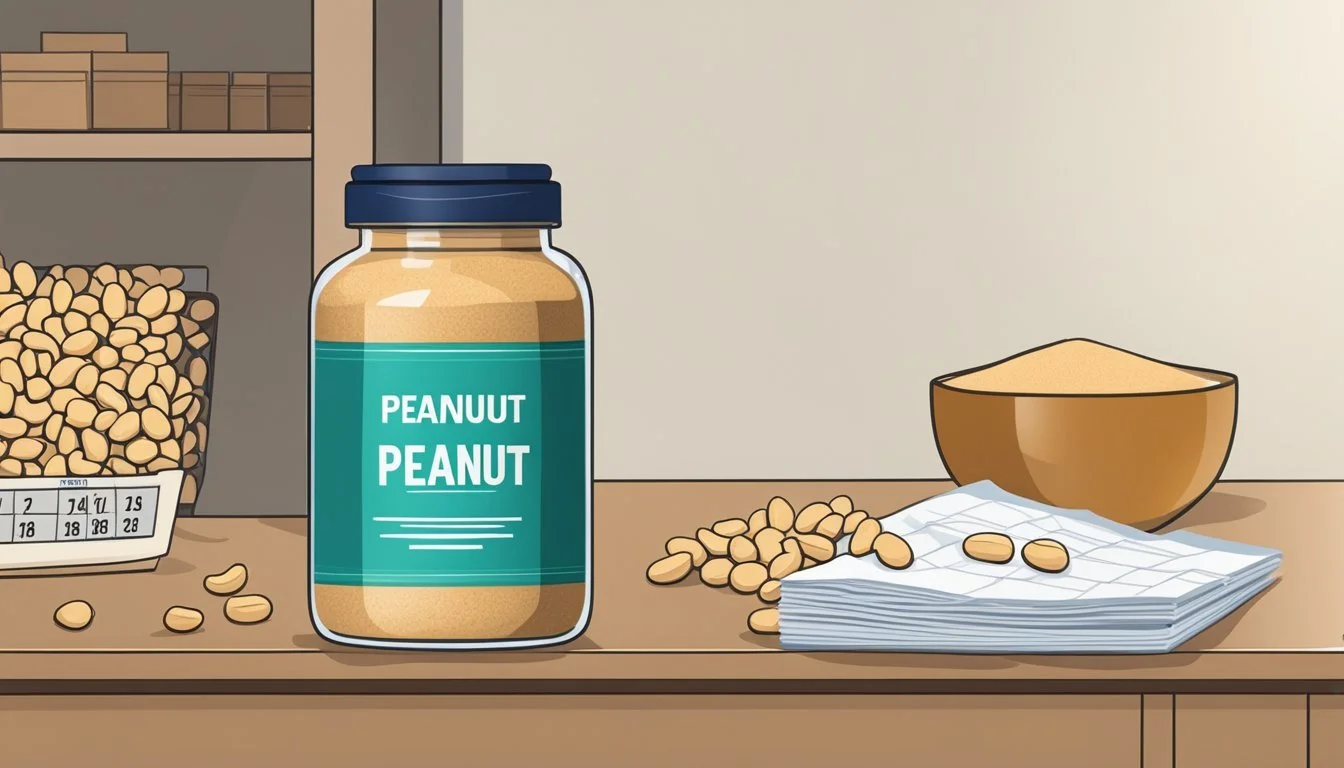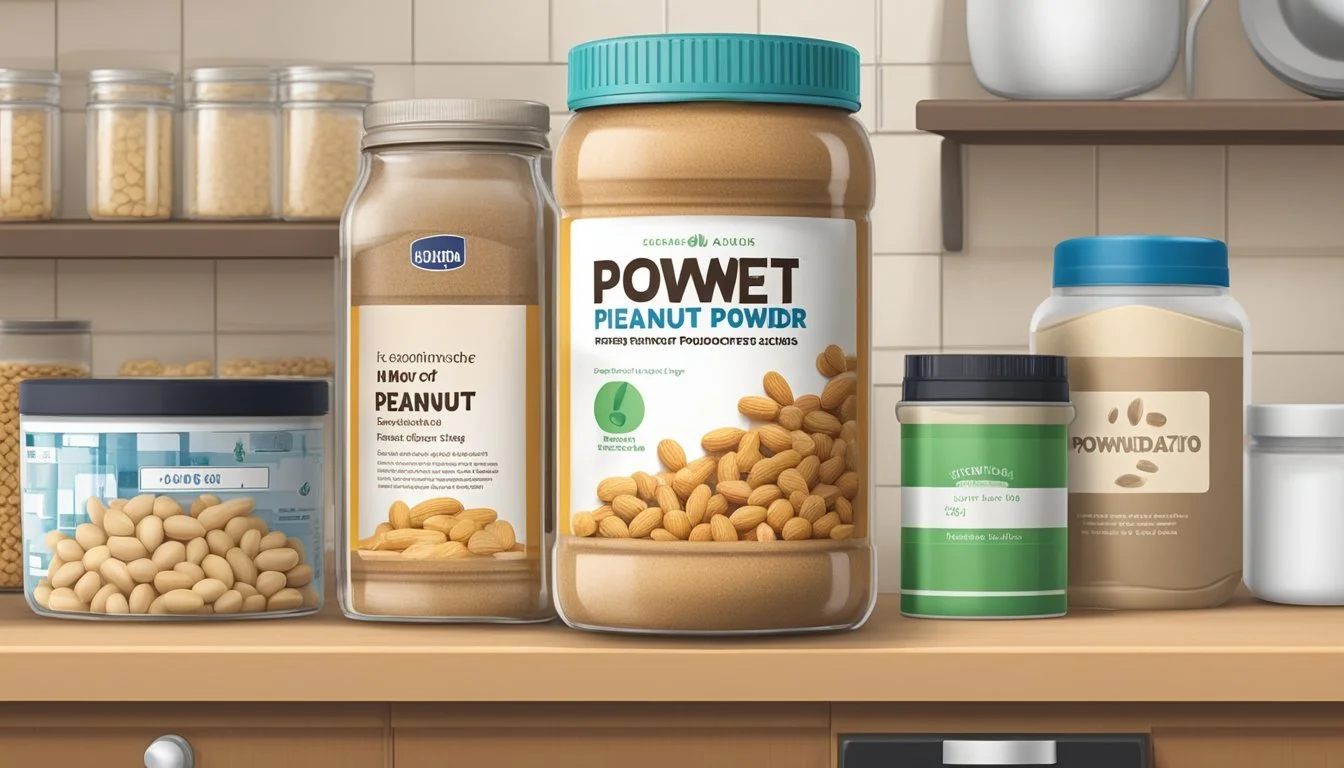How Long Does Peanut Powder Last?
Shelf Life and Storage Tips
Peanut powder has gained popularity as a versatile and protein-rich alternative to traditional peanut butter (how long does butter last?). It boasts a longer shelf life due to its lower fat content and lack of moisture, which are factors that normally quicken spoilage in whole or creamy peanut products. Typically, the shelf life of powdered peanut butter is 10-12 months from the date of manufacture, although this can vary slightly by brand and production practices.
It is imperative for consumers to note the expiration date on the packaging, as consumption of expired products can lead to off-flavors and potential health risks. Unopened peanut powder can last up to 5 years when stored under the right conditions, mostly in a cool, dry place. Once opened, the recommended consumption period is approximately a year, ensuring its flavor and quality are maintained.
Proper storage plays a crucial role in extending the freshness of peanut powder. It should be kept in an airtight container to protect it from humidity and contaminants, which can degrade its quality. Even with preservatives that some manufacturers may include to prolong shelf life, adherence to proper storage methods and awareness of expiration dates remains crucial for consumers to enjoy the full benefits and flavors of the product.
Understanding Peanut Powder
Peanut powder offers an alternative to traditional peanut butter with key differences in composition and nutrient content that may appeal to those looking for lower-fat, lower-calorie options.
Composition and Nutrients
Peanut powder is essentially made by pressing peanuts to remove a significant portion of the natural oils, which results in a product that is substantially lower in fat content. What remains is ground into a fine powder that still retains the essential flavors and nutrients of peanuts. Typically, powdered peanut butter contains a higher concentration of protein and fiber compared to its traditional counterpart.
Nutrient Information:
Fat: Reduced by approximately 85%
Protein: Comparable levels to traditional peanut butter
Fiber: Often higher in powdered peanut butter
Calories: Fewer than traditional peanut butter
Vitamin E: Present, with levels varying by brand
Minerals: Includes essential minerals like magnesium and potassium
Comparison to Traditional Peanut Butter
When compared to traditional peanut butter, powdered peanut butter is distinct in its nutrition profile:
Lower in Fat: The fat content in powdered peanut butter is significantly reduced, which makes it a more calorie-conscious choice.
Fewer Calories: Due to the lower fat content, the calorie count in powdered peanut butter is also lower.
Nutrients Preserved: Despite the reduction in fat, essential nutrients such as protein, fiber, vitamin E, and various minerals are still present in good amounts.
Traditional peanut butter is known for containing healthy fats, which are reduced in the powdered form. However, for those looking to manage their calorie and fat intake, powdered peanut butter offers a valuable alternative while still contributing a worthwhile dose of nutrients.
Shelf Life and Freshness
The longevity of powdered peanut butter is primarily dependent on storage conditions and adherence to expiration dates. Its freshness is integral to delivering the expected flavor and nutritional value.
Factors Influencing Shelf Life
Shelf life of powdered peanut butter generally ranges from 10-12 months to 2 years when unopened, as production methods vary between brands. After opening, the product typically remains good for 6-9 months to 1 year. Proper storage—in a cool, dry place away from direct sunlight—extends its usability by mitigating factors that lead to spoilage. It is important to note that an expiration date is provided by the manufacturer, and consumers are encouraged to consume the product before this date for optimal quality.
Detecting Spoilage Signs
When powdered peanut butter becomes rancid, it develops a noticeable change in smell, turning sharp or unpleasant. The presence of bacteria or other contaminants can also cause spoilage, observable through any changes in color or texture. If these signs are evident, it should not be consumed to avoid potential health risks.
Storage Recommendations
Proper storage is essential to maintain the freshness and extend the shelf life of powdered peanut butter. Below are specific guidelines for optimal storage conditions and extended storage solutions.
Optimal Storage Conditions
Powdered peanut butter should be stored in a cool, dry place to preserve its quality. It's important to keep the container tightly sealed to avoid exposure to air and moisture, which can deteriorate the product. Storing powdered peanut butter away from light and heat sources will also help prevent spoilage. If the storage area is prone to temperature fluctuations, consider placing the powder in a more controlled environment such as a pantry or cupboard that remains consistently cool.
Temperature: Ideally below 75°F (24°C)
Humidity: Low humidity environment
Extended Storage Solutions
For long-term preservation, powdered peanut butter may be stored in the refrigerator or freezer. In colder storage, make sure to place the peanut butter in airtight containers or mylar bags with oxygen absorbers. This extra step helps prevent freezer burn and protects against the ingress of moisture and odors.
Refrigerator: Lasts up to 6-12 months
Freezer: Can last between 12-18 months
Storing powdered peanut butter in bulk for long-term food storage requires careful attention to storage conditions. Seal the powder in mylar bags with oxygen absorbers, then store these bags in a cool, dry, dark place to maximize shelf life. Proper refrigeration can also be a viable option for extending the lifespan of your powdered peanut butter.
Usage and Versatility
Peanut butter powder offers a convenient and healthy alternative to traditional peanut butter. It provides the same rich flavor with lower fat content, making it a versatile ingredient in the kitchen.
Incorporation into Recipes
Peanut butter powder seamlessly blends into an array of recipes. Healthy smoothies and protein shakes benefit from its protein-rich composition, while oatmeal receives a flavorful boost with just a tablespoon added. For baked goods such as cookies and cakes, it contributes a nutty flavor without the added oils of traditional peanut butter. Sauces and spreads can be enriched by reconstituting the powder with water, creating a smooth consistency ideal for dressings or a classic peanut spread.
Smoothies/Shakes: Mix 1-2 tablespoons for a protein enhancement.
Oatmeal: Stir in a tablespoon before serving for a flavor twist.
Baked Goods: Add to recipes in place of traditional peanut butter.
Sauces/Spreads: Combine with water to achieve desired consistency.
Alternative Uses
Aside from conventional recipes, peanut butter powder boasts a range of alternative uses due to its diverse nature. Savory dishes such as Asian-inspired sauces or marinades for meat can incorporate the powder for an umami-rich nutty element. In the realm of snacks, a sprinkle over popcorn offers a surprising twist, and it can be a topping for ice cream to add a depth of flavor. For those seeking a caffeinated kick, it can even be stirred into coffee for a unique infusion. Notably, brands like PBfit and PB2 provide different varieties of peanut butter powder that can be easily stored for emergency food supplies, such as Augason Farms products with long shelf lives.
Savory Dishes: Enhance marinades with the powder.
Popcorn/Coffee: A light sprinkle transforms these snacks and drinks.
Ice Cream: Use as a flavorful topping.
Emergency Food Supply: Store for long-term use due to its stable shelf life.
Nutritional and Health Benefits
Peanut powder is recognized for its nutritional profile, offering protein, fiber, and essential vitamins and minerals while being low in calories. It is a vegan, non-GMO food source that contributes to a nutritious diet.
Dietary Considerations
Calories: Peanut powder is appreciated for its low-calorie content compared to whole peanuts or traditional peanut butter, making it a fitting choice for weight management.
Protein: An excellent source of plant-based protein, peanut powder aligns well with vegan dietary patterns.
Fiber: Rich in dietary fiber, it aids in digestion and contributes to the feeling of fullness.
Vitamins & Minerals: It provides vitamins such as niacin and vitamin E, along with minerals like manganese, supporting overall health.
Synergistic Effects with Other Foods
Peanut powder can enhance the nutritional value of various foods when added to them.
Smoothies: When combined with fruits and vegetables, it increases the protein content without significantly altering the calorie count.
Meals: Sprinkling peanut powder over meals can boost nutrient intake, particularly for those seeking additional protein and fiber in their diets.
Product Varieties and Brands
When choosing powdered peanut butter, consumers should consider factors such as ingredients, shelf life, and brand reputation to ensure they select a product that aligns with their nutritional needs and taste preferences.
Selecting the Right Product
Consumers should look for products that align with their dietary requirements, whether that includes natural ingredients, minimal preservatives, or low fat content. Brands vary significantly in terms of added sugar, salt, and natural oils, which can affect both the texture and nutty flavor of the reconstituted peanut butter.
Natural Options: Some brands focus on offering a more natural product with fewer additives, which may be preferred for those avoiding preservatives.
PB2 and PBFit: These popular brands often include added sugar and salt for taste enhancement, with PB2 also offering a PB2 Pure option with no added sugar or salt.
Naked Nutrition: This brand typically offers fewer additives, focusing on simple, pure ingredients.
Brand Comparisons and Reviews
The fat content across brands like Naked Nutrition, PB2, and PBFit varies, with some delivering as much as 85% less fat than traditional peanut butter. Consumers should read reviews to assess texture and flavor, ensuring it meets their expectations for a peanut butter substitute.
Long Shelf Life Brands: For those considering emergency food storage, brands like My Patriot Supply and Legacy Food Storage market powdered peanut butters with an emphasis on an extremely long shelf life, capitalizing on the product’s intrinsic longer-lasting qualities.
Brand Reputation: Established brands typically offer consistent quality, but new entrants to the market can also provide innovative options geared towards health-conscious consumers.
Preparing and Rehydrating Peanut Powder
Rehydrating peanut powder allows one to recreate the creamy or chunky consistency of peanut butter. The process is straightforward, involving the addition of a liquid to the dry powder with options to adjust flavor and consistency.
Steps to Rehydrate
Measure: Begin by measuring the desired amount of peanut powder into a bowl.
Add Liquid: Slowly add a liquid to the powder. Water works well, but for a richer taste, one might use milk or a milk alternative.
Mix: Combine the powder and liquid. For creamy peanut butter, a smooth blend is key. For a chunky consistency, mix less vigorously, leaving some small lumps.
Adjusting Consistency and Flavor
Consistency: If the mixture is too thick, add liquid in small increments. For a thicker product, simply add more peanut powder.
Flavor Additives: Enhance flavor by incorporating honey, salt, or sugar as preferred, but be mindful of the overall healthfulness of the product. Mixing in small chopped peanuts can introduce a chunky texture.
Safety and Expiration
Proper knowledge of a product's expiration date is crucial for maintaining safety and quality. Knowing how to determine if the product remains consumable post-expiration can help in minimizing waste.
Understanding Expiration Dates
The shelf life of powdered peanut butter typically ranges from 10-12 months to up to 5 years unopened, depending on the manufacturer. It is key to note that an expiration date is provided as an indicator of when the product is expected to start losing its optimal quality. Manufacturers determine this date based on various factors, including the nature of the ingredients and the packaging process. The product's quality, taste, and nutritional value may diminish after the expiration date, but it does not necessarily mean it is harmful if consumed immediately after this date.
Post-Expiration Usage
After powdered peanut butter has expired, it is important to inspect the product before use. Signs that powdered peanut butter should not be consumed include:
An off smell: If the peanut butter powder smells rancid or unpleasant, it has likely gone bad.
Visual changes: Any mold or changes in color indicates spoilage.
If none of these signs are present, the product might still be safe to consume, but one should be cautious and consider the quality may not be as good as it was pre-expiration. Always prioritize safety and if in doubt, it is best to discard the product.
Do-it-Yourself (DIY) Options
Making peanut powder at home allows individuals to control the nutritional content and flavor. One can create a product without additional preservatives often found in commercial options.
Homemade Peanut Powder Process
To begin, one needs roasted peanuts, which can either be purchased pre-roasted or roasted at home in an oven. Home roasting allows for a deeper control over the flavor profile, where one might opt to enhance the peanuts with nutritional boosters such as a light dusting of salt or other seasonings. The process involves pressing the roasted peanuts to remove natural oils. This step is critical because it transforms the peanuts into a form that can be ground into a fine powder. Unlike commercial products, DIY peanut powder need not be perfectly oil-free, which can preserve some of the natural taste and richness. Once pressed, one can use a food processor or a high-quality blender to convert the peanuts into powder.
Ingredients:
Roasted peanuts (as desired)
Equipment needed:
Oven (for roasting peanuts)
Food processor or blender
Strainer or sieve
Instructions:
Preheat the oven and roast the peanuts until golden brown.
Allow them to cool and then press to remove excess oil.
Blend the pressed peanuts into a powder consistency.
Storage and Preservation
After making the peanut powder, proper storage is essential to maintain quality and extend shelf life. Homemade peanut powder should be stored in a cool, dry place, away from direct sunlight. Mylar bags with oxygen absorbers are an excellent choice for storage, as they can significantly extend the freshness by preventing oxidation. If stored correctly, homemade peanut powder can last approximately 10-12 months. However, it is always wise to trust one's senses; if the peanut powder smells or tastes off, it should be discarded.
Storage recommendations:
In a cool, dry place
Away from direct sunlight
Possibly in mylar bags with oxygen absorbers
Shelf-life:
Approximately 10-12 months, always check for freshness before use
Environmental and Economic Considerations
In assessing the viability of powdered peanut butter, one must consider both its environmental footprint and its cost-effectiveness. The former focuses on sustainable agricultural practices, while the latter examines the product's value over time in terms of both finance and utility.
Sustainable Practices
When evaluating the sustainability of powdered peanut butter, supply chain practices come under scrutiny. Sustainable methods include the use non-GMO peanut crops, which appeal to consumers looking for natural and environmentally friendly options. Additionally, the production and harvesting of peanuts for powdered products can benefit from responsible farming techniques that are intended to minimize environmental impact and encourage the long-term health of the ecosystem.
Cost-Effectiveness
Powdered peanut butter represents a convenient option for consumers, but it also must be examined for its cost-effectiveness. This product is known for its long-term food storage potential, with a considerably extended shelf life compared to traditional peanut butter. This extended shelf life not only contributes to reducing food waste but also offers a healthy, shelf-stable protein source that can provide nourishment in situations where perishable items are not plausible.
Conclusion
In assessing the longevity and preservation of powdered peanut butter, the evidence clearly suggests it is a durable pantry item. Its low fat content extends its shelf life well beyond that of traditional peanut butter. While normal peanut butter may last approximately 2-3 months after opening when kept at room temperature and 6-9 months when refrigerated, powdered peanut butter considerably surpasses this duration.
The standard shelf life of powdered peanut butter is between 10-12 months from the manufacturing date. However, some brands offer products that can last up to 5 years unopened. Once opened, powdered peanut butter can maintain its quality for about 1 year.
It is imperative for consumers to heed the expiration date on the package, as consuming expired powdered peanut butter could result in off-flavors or health risks. Proper storage—in a cool, dry place—is also vital in preserving its quality and preventing spoilage.
Signs of Spoilage:
Off flavors or odors
Clumping or changes in texture
Discoloration
For optimal preservation, one should ensure the powdered peanut butter remains in an airtight container and keep it away from moisture. Adhering to these guidelines, individuals can reliably incorporate powdered peanut butter into their pantry, benefiting from its longevity and versatility.

